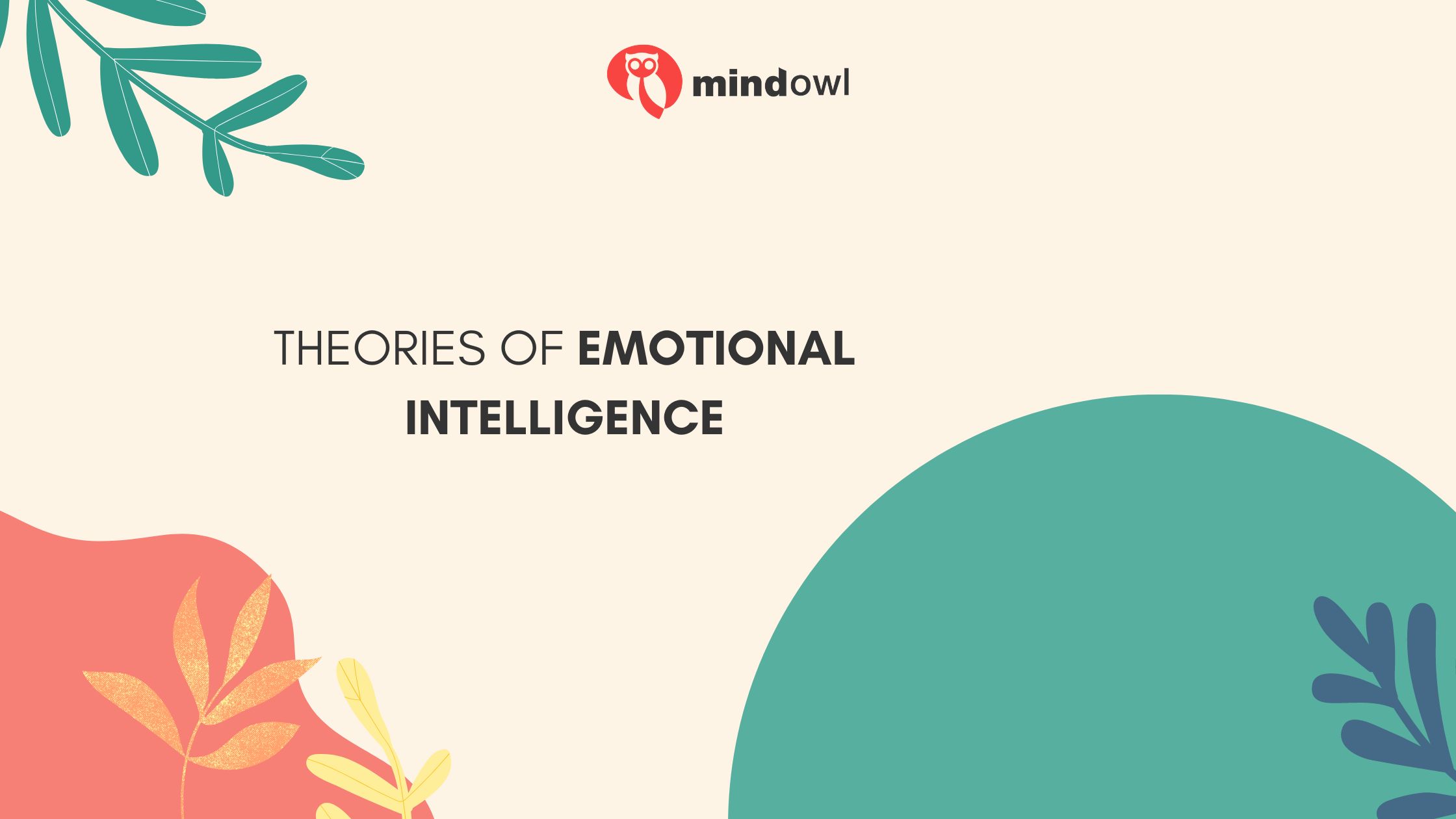Have you ever wondered why some people seem to handle social and personal situations far better than others? This could be down to something known as emotional intelligence, a concept first developed in 1995 by Daniel Goleman.
In this article, we delve into the different theories of emotional intelligence, helping you understand its key components and how it shapes our interactions both personally and professionally.
Get ready – it’s time to decode emotions!
Key Takeaways
- Emotional intelligence is the ability to understand and regulate emotions, which plays a crucial role in our personal and professional lives.
- The five components of emotional intelligence are self-awareness, self-regulation, motivation, empathy, and social skills.
- Different theories of emotional intelligence include Goleman’s EI Performance Model, Bar-On’s EI Competencies Model, and Mayer-Salovey-Caruso’s EI Ability Model.
- Emotional intelligence has a profound impact on academia, success in various areas of life, and our perceptions of situations and others.
- There is a positive link between personality traits and emotional intelligence.
- Emotional intelligence has practical applications in the workplace for improved communication, teamwork, leadership capacity.
Understanding Emotional Intelligence

Emotional intelligence is a concept that involves the ability to understand and regulate emotions, and it plays a crucial role in our personal and professional lives.
Explanation of the concept
Emotional intelligence is a skill. It helps us make sense of our feelings and the feelings of others. This skill allows us to manage and control these emotions. We use it in many ways throughout our lives, like when we are sad, happy or angry.
Emotional intelligence also plays a role in how we act upon our emotions towards ourselves and others around us. For example, if you understand why your friend is upset, you can provide them comfort better.
It’s not just about being aware but knowing how to express and keep your emotions under check too.
Importance of emotional intelligence
Emotional intelligence plays a big role in our lives. It is more valuable than IQ for success. If we understand emotions, we can work well with others and handle stress. This boosts our leadership skills and personal health.
People with high emotional intelligence are good at reading emotions. They use this skill to make wise decisions. These people handle hard times better too. So, they live happier lives overall.
The Five Components of Emotional Intelligence

The five components of emotional intelligence include self-awareness, self-regulation, motivation, empathy, and social skills.
Self-awareness
Self-awareness is a big part of emotional intelligence. It’s being able to spot and make sense of your own feelings and thoughts. People with high self-awareness know their own minds well.
They understand how their feelings can change the way they act and interact with others.
Self-regulation
Self-regulation is all about handling your feelings. It is a key skill in emotional intelligence. You use it to keep your mind quiet and calm. The goal is to not let bad feelings rule you.
For example, if someone makes you angry, self-regulation helps you stay cool and think before acting out. Daniel Goleman puts self-regulation as one of the five important parts of emotional intelligence at work.
Motivation
Everyone needs a push to reach their goals. This drive comes from motivation, a key part of emotional intelligence. People who have high emotional intelligence are often driven by things other than money or fame.
They may seek to learn new things or make a real difference in the world.
Motivation also plays an important role at work. It helps people focus on their tasks and finish them well. Without motivation, it is hard for anyone to do their best job possible.
So, having strong motivation can lead one towards success in both life and work.
Empathy
Empathy is a key part of emotional intelligence. It helps you understand other people’s feelings. You can see things from their point of view. Daniel Goleman, a famous expert, says empathy is very important in his theory about emotional intelligence.
If you develop your empathy skills, you can better connect with people and know what they want or need. It makes for good communication and strong bonds with others.
Social skills
Social skills are a key part of emotional intelligence. They help us connect with others in a good way. These skills let us talk well, listen well, and show that we care about other people’s feelings.
Good leaders need these social skills to build strong teams. To make our social skills better, we should learn how to interact nicely with others. We also need to understand their feelings and needs.
This will boost our overall emotional intelligence.
Different Theories of Emotional Intelligence
In this section, we will explore the theories of emotional intelligence put forth by Goleman, Bar-On, and Mayer, Salovey, and Caruso.
Goleman’s EI Performance Model
Goleman’s EI Performance Model is one of the different theories of emotional intelligence. According to Goleman, emotional intelligence involves recognizing our own feelings and understanding the emotions of others.
It also includes being able to motivate ourselves and maintain self-control in various situations. This model has a wide range of applications, including in educational settings where it can help improve students’ emotional intelligence.
In the workplace, managers with high emotional intelligence are able to be objective by being self-aware, which leads to increased productivity and motivation among employees. Additionally, Goleman’s EQ model can be used to assess employees’ levels of emotional intelligence and identify areas for improvement.
Bar-On’s EI Competencies Model
Bar-On’s EI Competencies Model is a theory that explains emotional intelligence by focusing on 15 interconnected emotional and social competencies. According to this model, understanding and managing emotions can guide our behavior and thinking.
One way to measure emotional intelligence based on Bar-On’s model is through the EQ-i, a self-report measure. This model defines emotional intelligence as a combination of competencies, skills, and facilitators.
The EQ-i has been translated into many languages and its validity and reliability have been thoroughly studied. Bar-On’s model is one of several theories that explore how emotions impact our thinking, learning, problem-solving, and decision-making abilities.
Mayer, Salovey, and Caruso’s EI Ability Model
Mayer, Salovey, and Caruso’s EI Ability Model is a theory of emotional intelligence that focuses on four skill dimensions. This model suggests that understanding and managing emotions can help with thinking and guiding behavior.
The theory emphasizes the importance of perceiving and expressing emotions, as well as using emotions to facilitate thinking. To measure these skills, the Mayer-Salovey-Caruso Emotional Intelligence Test (MSCEIT) was developed.
It is considered one of the most researched and supported measures of ability emotional intelligence. Based on this model, it is believed that emotional intelligence can be developed and improved over time.
Effects of Emotional Intelligence
Emotional intelligence has a profound impact on academia, success, and perceptions.
Impact on academia
Emotional intelligence has a significant impact on academia, especially when it comes to academic performance and social interactions. Studies have shown that students with higher emotional intelligence tend to engage in more pro-social behavior, such as helping others and resolving conflicts peacefully.
They also show improved academic performance and stronger academic social networking skills. In fact, emotional intelligence is positively correlated with scholastic achievement, particularly for disadvantaged students.
Implicit theories of emotional intelligence are also relevant to students’ emotional and academic outcomes. These findings highlight the importance of developing emotional intelligence skills in educational settings to support student success.
Relationship to success
Research has shown that emotional intelligence is linked to success in various areas of life. It has been found that individuals with higher levels of emotional intelligence tend to have better academic performance and cognitive abilities.
Furthermore, emotional intelligence can also contribute to career success by enhancing leadership skills and improving social competence in the workplace. In fact, some experts suggest that emotional intelligence is even more important than IQ when it comes to achieving success in life.
Influence on perceptions
Emotional intelligence (EI) has a significant impact on our perceptions. Research shows that people with higher EI are better at understanding and interpreting emotions, both in themselves and others.
This ability to recognize and manage emotions affects how we perceive situations, people, and even ourselves. For example, teachers with high levels of emotional intelligence have been found to be more effective in the classroom.
Additionally, individuals with strong EI tend to have better relationships and are seen as more empathetic by others. Overall, emotional intelligence plays a crucial role in shaping our perceptions and interactions with the world around us.
Intersection of Emotional Intelligence and Personality
Exploring the link between emotional intelligence and personality traits reveals different types of EI. Discover how they intersect to enhance personal growth and relationships. Want to know more? Keep reading!
Examining the link between EI and personality traits
A study conducted in 2014 explored the connection between Emotional Intelligence (EI) and personality traits. The researchers examined a group of 354 students and found that there is a positive link between personality traits and EI.
Different dimensions of EI were associated with specific personality factors. Traits like extraversion, agreeableness, and openness to new experiences were important predictors of EI.
This suggests that our personality can influence our ability to understand and manage emotions effectively. Additionally, Trait Emotional Intelligence (Trait EI) was identified as a stable personality trait that impacts various aspects of human behavior.
Different types of EI
There are different types of emotional intelligence:
- Goleman’s model combines emotion – related skills, cognitive intelligence, and personality traits.
- Trait EI focuses on a person’s self – perceptions of their emotional abilities.
- Ability EI measures a person’s actual emotional skills and how well they can manage their emotions.
- Mixed models integrate both trait and ability aspects of emotional intelligence.
Applications of Emotional Intelligence
In the workplace, emotional intelligence can enhance communication and teamwork. It is also valuable in leadership and organizational behavior. Discover how emotional intelligence can be applied to improve professional relationships and success.
Read more!
In the workplace
Emotional intelligence plays a vital role in the workplace, contributing to better communication, teamwork, and overall success. Individuals with high emotional intelligence are more self-aware, able to regulate their emotions effectively, and have strong social skills.
They understand others’ perspectives, show empathy towards colleagues, and build stronger relationships. Studies have shown that emotionally intelligent individuals are motivated by factors beyond external rewards like fame or money.
They contribute positively to team dynamics, enhance collaboration, and create a positive work culture. Emotional intelligence is highly valued by employers as it leads to improved performance and productivity in the workplace.
In terms of employee work enthusiasm
Individuals with high emotional intelligence typically perform better in the workplace, possess stronger work abilities, and provide greater benefits to their company. Therefore, we should encourage everyone to learn from outstanding employees who possess high emotional intelligence.
Special recognition or rewards can be given to employees who demonstrate high emotional intelligence and exceptional performance. This not only serves as a role model for outstanding employees but also enhances overall work enthusiasm. Pin badges are an excellent choice to reward outstanding employees. They can wear the badges as a symbol of honour and recognition.
In leadership and organizational behavior
Emotional intelligence plays a crucial role in leadership and organizational behavior. Leaders with high emotional intelligence are more effective in managing and leading their teams.
They have the ability to understand and regulate their own emotions, which allows them to handle stressful situations with composure. Additionally, leaders with strong emotional intelligence are able to empathize with others and build positive relationships within their organization.
This leads to increased trust, collaboration, and overall employee satisfaction. Studies have also shown that organizations with emotionally intelligent leaders have better customer relations and improved business outcomes.
Therefore, developing emotional intelligence is essential for successful leadership in today’s workplace environment.
-EI helps leaders manage teams effectively
Conclusion
In conclusion, theories of emotional intelligence provide valuable insights into understanding and developing this important skill. Goleman’s model highlights the five key components of emotional intelligence – self-awareness, self-regulation, motivation, empathy, and social skills.
Mayer and Salovey’s ability model emphasizes the importance of acquiring emotional skills through learning and practice. These theories show that emotional intelligence plays a vital role in areas such as leadership, communication, and personal growth.
By cultivating our emotional intelligence, we can improve our relationships with others and enhance our overall well-being.
FAQs:
What are the main theories of emotional intelligence?
The main theories of emotional intelligence include the model proposed by Daniel Goleman, the EI Model by Mayer et al, and the concept of social and emotional intelligence.
What is the significance of Daniel Goleman in the theories of emotional intelligence?
Daniel Goleman is a prominent figure in the field of emotional intelligence. He is known for popularizing the concept and developing a framework for understanding and applying emotional intelligence in various aspects of life, such as leadership, work, and relationships.
How does emotional intelligence impact leadership skills?
A: Emotional intelligence plays a crucial role in leadership as it enables leaders to understand and manage their own emotions and those of others. This understanding enhances communication, empathy, and decision-making, leading to effective leadership and team building.
What is the relationship between emotional intelligence and social intelligence?
Emotional intelligence and social intelligence are interrelated as they both involve understanding and managing emotions, as well as navigating social interactions and relationships. Social intelligence often encompasses the broader context of social situations and the ability to adapt to various societal norms.
How is emotional intelligence measured or assessed?
Emotional intelligence is often measured using tools such as the Emotional Quotient Inventory (EQ-i) or through assessments that evaluate emotional awareness, emotional regulation, and interpersonal skills. These measures help individuals and organizations gauge their emotional competencies and areas for development.
What is the significance of emotional intelligence in the workplace?
Emotional intelligence is highly relevant in the workplace as it influences communication, collaboration, conflict resolution, and overall work performance. Employees with high emotional intelligence tend to exhibit better interpersonal skills and adaptability, contributing to a positive work environment.
How does emotional intelligence impact personal and social relationships?
Emotional intelligence contributes to improved personal and social relationships by fostering empathy, effective communication, and conflict resolution. Individuals with high emotional intelligence are better equipped to navigate and understand the emotions of others, leading to more meaningful and positive interactions.
What are some areas of research on emotional intelligence?
Research on emotional intelligence encompasses various areas such as the structure of emotional intelligence, the relationship between emotional intelligence and job performance, as well as the development of models and assessments to measure emotional competencies. Additionally, there is ongoing research on the influence of emotional intelligence on mental health and well-being.
Can emotional intelligence be developed and improved?
Yes, emotional intelligence can be developed and improved through self-awareness, practice, and learning to recognize and regulate emotions. This development can occur through training programs, coaching, and self-reflection, leading to enhanced emotional competencies and overall well-being.
How does emotional intelligence impact decision-making and problem-solving?
Emotional intelligence influences decision-making and problem-solving by enabling individuals to consider and manage their emotions and the emotions of others in the decision-making process. This heightened awareness and empathy can lead to more informed, empathetic, and effective decision-making.
MindOwl Founder – My own struggles in life have led me to this path of understanding the human condition. I graduated with a bachelor’s degree in philosophy before completing a master’s degree in psychology at Regent’s University London. I then completed a postgraduate diploma in philosophical counselling before being trained in ACT (Acceptance and commitment therapy).
I’ve spent the last eight years studying the encounter of meditative practices with modern psychology.


